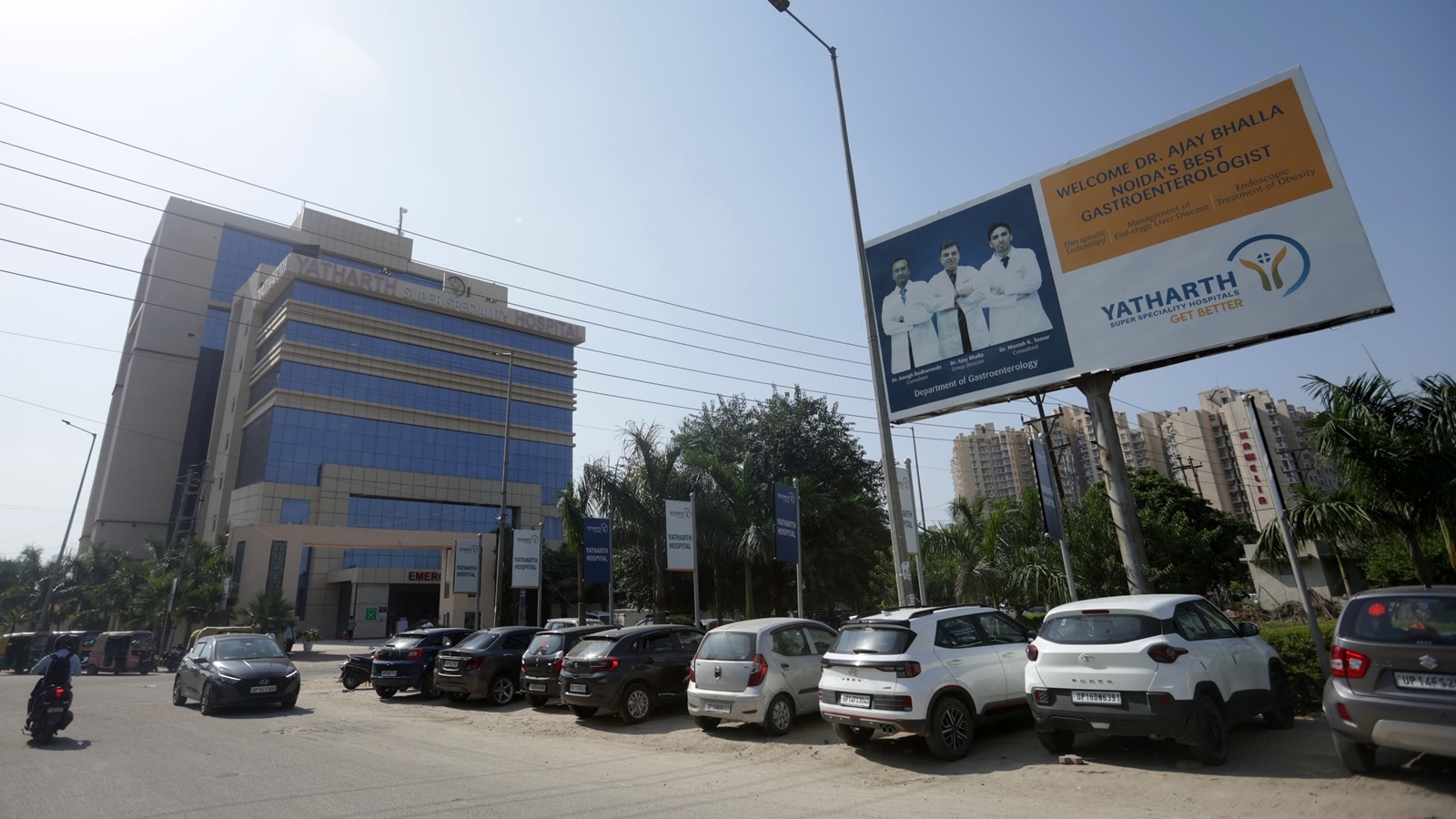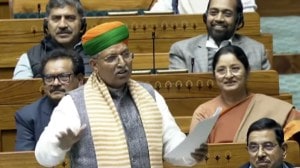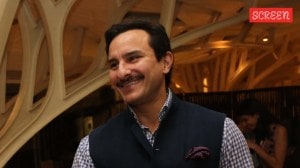Fake family trees, forged documents, a diagnostic lab that existed only on paper, fabricated seals, a plastic box labelled “premium dates” but full of red “official” stickers — and a 10-member syndicate that revolved around a Delhi surgeon.
These are among the main props and players behind an international kidney transplant racket that was allegedly being run by the accused who had links to two well-known hospitals in the National Capital Region, exploiting loopholes in the system and even bypassing screening at the diplomatic level, according to an investigation of case records by The Indian Express.

These include copious interrogation reports to international approval forms and call records – and lay bare the racket that led to the arrest of 10 accused, including the 50-year-old surgeon who allegedly conducted around 20-25 transplants for Bangladeshi patients at the Apollo and Yatharth hospitals in Noida over the past three years that are under probe.
The police have also sought details of over 125-130 other transplants conducted on Bangladeshi patients at these two hospitals from 2018 to 2024 — an analysis of case records show all of them were allegedly conducted by the accused surgeon, Dr Vijaya Rajakumari who was arrested on July 1, and is now on bail. She denied all the allegations in court.
 Case records show Dr Vijaya Rajakumari conducted a total of 61 kidney transplant surgeries for Bangladeshi patients between August 7, 2022 and May 13, 2024 at Yatharth Hospital, Noida. (Express photo by Gajendra Yadav)
Case records show Dr Vijaya Rajakumari conducted a total of 61 kidney transplant surgeries for Bangladeshi patients between August 7, 2022 and May 13, 2024 at Yatharth Hospital, Noida. (Express photo by Gajendra Yadav)
Among those arrested were also two Bangladeshi nationals, including a translator working in India’s medical tourism sector.
The racket was busted by Delhi Police following an investigation triggered by an alert from the Union Health Ministry in April this year warning of a surge in “commercial dealings” involving organ transplants for foreigners.
Following a case filed on June 17, and the charge sheet a month later, the Delhi High Court granted bail on August 23 to Dr Rajakumari, who according to police was associated primarily with Indraprastha Apollo in Delhi. Apollo Hospital in Noida and Indraprastha Apollo are part of the Hyderabad-based Apollo Group of Hospitals. The other accused are also out on bail.
Story continues below this ad
On September 12, a Delhi court took cognizance of the chargesheet filed under sections of the IPC, including cheating and criminal conspiracy, and under the Transplantation of Human Organs Act, 1994.
The rules — and how they were bent
In India, organ donation is strictly regulated with only close blood relatives — parents, siblings, children, grandparents, grandchildren — and spouses allowed to donate. Other relatives can donate under special circumstances, subject to approval by a Government-appointed committee. Foreign nationals must submit a “Form 21”, which essentially is a no-objection certificate from the respective embassy to confirm that the donation is driven by love, not money or coercion.
It’s this form that lies at the core of the Delhi-Dhaka racket, records show. According to police, the syndicate allegedly fabricated links between donors and recipients, using fake family trees and documents, to secure this form for each surgery. The misuse of Form 21 in this manner is a first in India, case records suggest.
An analysis of case records shows Dr Rajakumari allegedly conducted 66 kidney transplant surgeries in total between January 1, 2018 and March 31, 2023 at the Apollo hospital in Noida involving Bangladeshi patients. It also shows the same surgeon allegedly conducted 78 such operations on foreigners between August 7, 2022 and May 13, 2024 at Yatharth hospital in Noida, including 61 on Bangladeshi patients.
Story continues below this ad
Apollo, Noida: The Indian Express reviewed 90 Form 21 verifications for Bangladeshi patients between April 1, 2019 and May 31, 2024. Only one involved a near relative — a spouse. Fifteen different types of family trees, mostly depicting the donor as a distant relative, were allegedly created to claim that the donation was out of love. The donor was the recipient’s sister’s son in 50% of the cases, the recipient’s wife’s brother (12%), mother’s sister’s son (9%), husband’s sister’s son (6%) and father’s sister’s son (5%).
Yatharth, Noida: In 61 cases under the scanner, not a single one involved a close relative — spouse, sibling, or a child. Records show at least 14 different types of family trees: recipient’s sister’s son (31%), recipient’s husband’s sister’s son (18%), recipient’s wife’s sister’s son (15%), recipient’s mother’s sister’s son (15%), and recipient’s wife’s brother (5%).
According to police, in most of these cases, close relatives of recipients were incorrectly deemed unfit using forged documents so that fake donors could be created through fabricated family trees.
That apart, the broad modus operandi was not too different from other such rackets: Lure poor individuals from Bangladesh to donate kidneys for Rs 4-5 lakh, and charge recipients around Rs 25 lakh — much above the “going rate” in Noida of Rs 5 lakh to Rs 15 lakh for complex cases. The arrested Bangladeshis allegedly told police that they would earn around Rs 8 lakh for every transplant including payment for donors.
Story continues below this ad
The Bangladesh High Commission did not respond to a request from The Indian Express seeking comment on how the alleged fake documents that were used to secure Form 21 copies escaped scrutiny — or allegations by an accused that an unnamed official charged money for clearing files. Records show the police are awaiting verification reports from the High Commission to take the investigation forward.
How they did it
According to the police, the medical translator identified in records as Rasel and his compatriot Rokon manipulated documents after saving templates on a laptop.
The other items seized from them: a plastic box labelled “Oasis Arabia Premium Dates” with official stickers at Rokon’s home; 20 seals purportedly of various officials; and, a pen drive with 991 Word files including digital signatures, bank account information, police verification reports, copies of national IDs, and medical reports from Raju Diagnostic and Laboratory, which has been identified as a fictitious clinic.
According to police, all of these were used to construct fake family trees. Rasel also allegedly claimed during questioning that a Bangladesh High Commission official charged “Rs 20,000” per case to expedite patient files.
Story continues below this ad
A sample case — and what it showed
During its probe, the police recovered documents from Rokon’s rented residence at Jasola in Delhi related to the kidney transplant of a 44-year-old man from Dhaka that was allegedly to be conducted at Yatharth with the patient’s 35-year-old brother-in-law listed as donor.
These documents included a Form 21, purportedly bearing the signature and seal of the First Secretary (Consular) of the Bangladesh High Commission, along with “official” seals on the donor’s and recipient’s photos. According to police, two fake seals resembling those of the High Commission were also found.
Records show seven sets of documents annexed to this Form 21: a police clearance certificate from Bangladesh authenticated by purported seals of an advocate, the police station and the officer in charge; the Senior Assistant Secretary (Consular); Senior Assistant Secretary (Law & Justice Division); Consular and Welfare Wing of the Ministry of Foreign Affairs in Dhaka; and the Bangladesh High Commission in Delhi. The police allege that five of them, excluding those of the police station and its officer, matched fake seals seized from the accused.
These five seals were also used to authenticate birth registration certificates; translated copies of national IDs for the donor, recipient and other “family members”; marriage certificates in Bangla and their English translations; and, death certificates of deceased relatives. The seals were also used on a donor affidavit, a no-objection certificate from relatives and a purported family tree, all stamped by a public notary in Bangladesh.
Story continues below this ad
The 44-year-old patient’s “family tree” said his father died of cancer in 2019. His mother was deemed incompatible due to high blood sugar levels in a report from the fictitious Raju lab. Other certificates from the lab ruled out the recipient’s wife, her father and her two brothers due to incompatible blood type and other health conditions. The “family tree” zeroed in on the wife’s eldest brother who, police suspect, was a fake relative.
Rasel allegedly told the police that the two hospitals where the operations were conducted used to send emails to Raju lab for verification of documents. However, records show, the accused allegedly had access to this email account and verified the documents themselves.
Rigorous process of verification, says Yatharth
The case has focused on 20-25 kidney transplants conducted at Yatharth Hospital and Apollo Hospital — both in Noida.
Responding to queries in this regard, a spokesperson for Yatharth said: “Regarding the recent case, we want to clarify that all cases, including those from visiting consultants, undergo our rigorous multi-layered verification process. We have taken proactive steps to further strengthen our processes. It is crucial to emphasize that Yatharth Hospital has always adhered to all legal and ethical guidelines for transplant procedures. We have fully cooperated with the authorities in their investigation. We remain committed to serving our community with integrity and compassion, striving to uphold the trust placed in us by our patients and their families.”
Story continues below this ad
Apollo Hospital did not respond to a detailed questionnaire on the case from The Indian Express.



 Case records show Dr Vijaya Rajakumari conducted a total of 61 kidney transplant surgeries for Bangladeshi patients between August 7, 2022 and May 13, 2024 at Yatharth Hospital, Noida. (Express photo by Gajendra Yadav)
Case records show Dr Vijaya Rajakumari conducted a total of 61 kidney transplant surgeries for Bangladeshi patients between August 7, 2022 and May 13, 2024 at Yatharth Hospital, Noida. (Express photo by Gajendra Yadav)






























